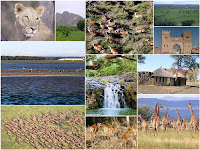Organized crime linked to illicit trade in great apes
Almost 3,000 live great apes are stolen annually from the forests of Africa and South-east Asia in an illicit trade increasingly linked to organized crime and trans-boundary networks that move the animals in the same ways as drugs, arms and laundered money, according to a new United Nations report released today.
“Stolen Apes: The Illicit Trade in Chimpanzees, Gorillas, Bonobos and Orangutans,” produced by the UN Environment Programme (UNEP) through the Great Apes Survival Partnership (GRASP), estimates that at least 22,218 great apes have been lost from the wild since 2005 – either sold, killed during the hunt, or dying in captivity – with chimpanzees comprising 64 per cent of that number.
“The current scale outlined in this report underlines how important it is that the international community and the organizations responsible for conserving endangered species remain vigilant, keeping a step ahead of those seeking to profit from such illegal activities,” UNEP Executive Director Achim Steiner said in a press release. Read on>>>
“Stolen Apes: The Illicit Trade in Chimpanzees, Gorillas, Bonobos and Orangutans,” produced by the UN Environment Programme (UNEP) through the Great Apes Survival Partnership (GRASP), estimates that at least 22,218 great apes have been lost from the wild since 2005 – either sold, killed during the hunt, or dying in captivity – with chimpanzees comprising 64 per cent of that number.
“The current scale outlined in this report underlines how important it is that the international community and the organizations responsible for conserving endangered species remain vigilant, keeping a step ahead of those seeking to profit from such illegal activities,” UNEP Executive Director Achim Steiner said in a press release. Read on>>>



